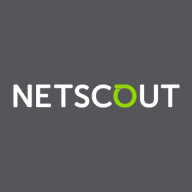


Arbor DDoS and Uplynk compete in security for network and streaming platforms. Arbor DDoS leads in DDoS mitigation capabilities, while Uplynk is strong in streaming optimization and application security.
Features: Arbor DDoS offers predefined filters to quickly stop attacks, machine learning for minimizing false positives, and extensive traffic visualization. Uplynk focuses on optimizing application performance, provides JWT tokens for secure authentication, and offers a streamlined streaming platform.
Room for Improvement: Arbor DDoS needs to enhance its auto-mitigation feature to avoid impacting legitimate traffic and improve its UI and reporting systems. Uplynk could benefit from better documentation, faster rule deployment times, and more flexible pricing options.
Ease of Deployment and Customer Service: Arbor DDoS offers flexible deployment in on-premise or hybrid cloud environments but is deemed complex. Uplynk provides straightforward integration within cloud environments, despite limited global endpoint reach. Both products have solid technical support, but Arbor occasionally encounters slower response times.
Pricing and ROI: Arbor DDoS is considered costly with a licensing model based on throughput but proves effective in maintaining uptime. Uplynk has improved pricing but remains substantial when fully featured, appealing to budget-conscious organizations with competitive options.
| Product | Market Share (%) |
|---|---|
| Cloudflare | 17.8% |
| Arbor DDoS | 10.2% |
| Uplynk | 1.7% |
| Other | 70.3% |
| Company Size | Count |
|---|---|
| Small Business | 46 |
| Midsize Enterprise | 8 |
| Large Enterprise | 25 |
| Company Size | Count |
|---|---|
| Small Business | 25 |
| Midsize Enterprise | 14 |
| Large Enterprise | 29 |
Cloudflare enhances web performance and security with features like CDN caching and DDoS mitigation while providing easy DNS management and intuitive setup through its user-friendly dashboard.
Cloudflare is recognized for its comprehensive web security and performance solutions. Speed improvements are achieved through caching mechanisms and DDoS protection, combining ease of DNS management with flexible page rules. The robust analytics and threat insight tools provide valuable data, assisted by a user-friendly dashboard allowing quick setup and configuration. An API offers dynamic DNS settings ensuring low latency and high performance across the globe.
What are Cloudflare's key features?Cloudflare finds utility across industries for DNS management and defense mechanisms. Its content delivery network assures fast content distribution and fortified security. Businesses integrate features like web application firewalls, load balancing, end-to-end SSL, and zero trust to protect websites from cyber threats while ensuring resilience and reliable performance.
Arbor DDoS offers a comprehensive defense system against DDoS attacks, integrating a user-friendly GUI and advanced threat mitigation technologies for enhanced network protection.
Arbor DDoS is recognized for its ability to manage high-volume DDoS attacks efficiently, providing extensive protection through real-time traffic analysis and automated threat detection. It utilizes advanced techniques such as blackhole and BGP Flowspec for effective threat management. Arbor's cloud signaling allows users to handle and mitigate volumetric attacks while maintaining service availability. Though it provides robust security features, users note potential improvements in auto-mitigation, scalability, and AI integration. Challenges like an outdated graphical interface, hardware stability, and false positives need addressing to further enhance its usability and integration with third-party systems.
What are the key features of Arbor DDoS?Internet service providers and telecom companies commonly adopt Arbor DDoS to protect their networks and infrastructure from DDoS attacks. It is also implemented in financial and government sectors to ensure web application security and maintain high availability. Arbor DDoS supports a hybrid approach, utilizing both on-premise and cloud solutions to manage traffic efficiently and sustain service quality during attacks.
Uplynk is a robust platform providing CDN integration and optimized streaming services, improving user experience and application performance. It offers control over CDN caching, redirects, and asset transformations, supporting seamless asset management and mobile security.
Uplynk enhances application performance through efficient API calls, optimized web server loads, and robust CDN configurations. It ensures high availability and performance by leveraging Verizon EdgeCast CDN, crucial for managing high-volume traffic on e-commerce platforms. Though Uplynk excels in asset caching and mobile security with JWT tokens and AES encryption, some users note its global reach needs improvement, and its interface lacks modern user-friendliness. Deployment of new rules can be slower compared to competitors, while documentation and rate limiting features require enhancement. Despite this, Uplynk remains a preferred choice for organizations seeking streamlined web server load optimization and enhanced application performance.
What are Uplynk's key features?Organizations deploy Uplynk to optimize web server load, enhance streaming service performance and support high-traffic volume management, especially in e-commerce. Its security measures, combined with Verizon EdgeCast CDN, ensure high availability and reliable performance, enhancing mobile engagement through specialized frameworks.
We monitor all Distributed Denial-of-Service (DDoS) Protection reviews to prevent fraudulent reviews and keep review quality high. We do not post reviews by company employees or direct competitors. We validate each review for authenticity via cross-reference with LinkedIn, and personal follow-up with the reviewer when necessary.